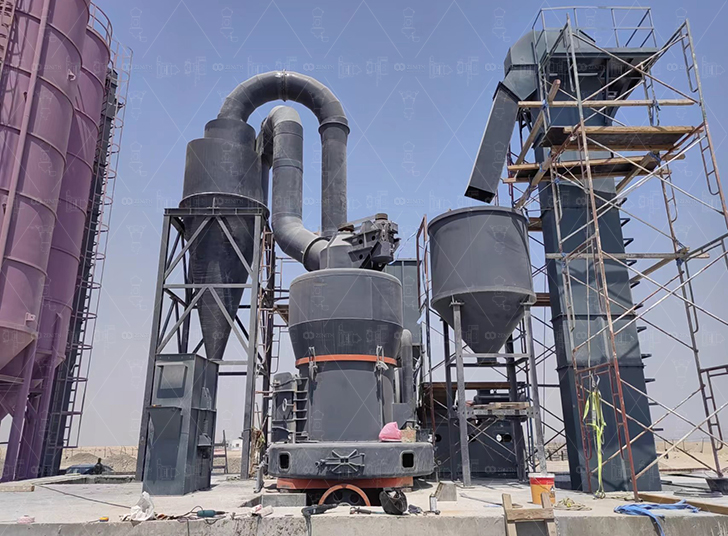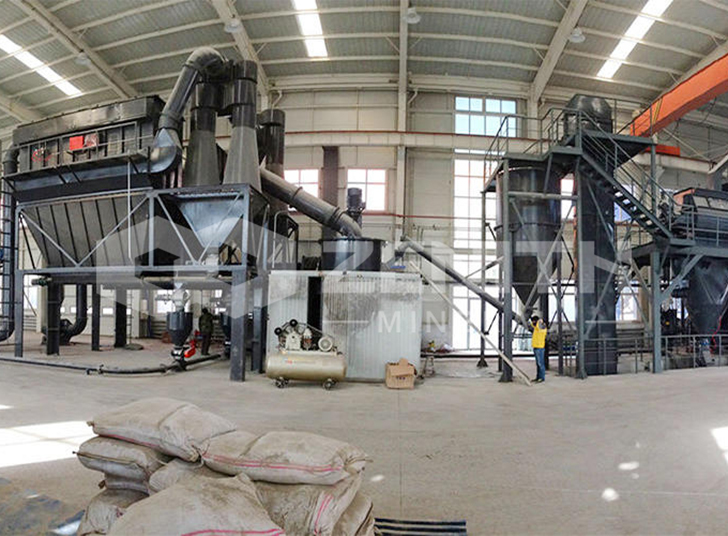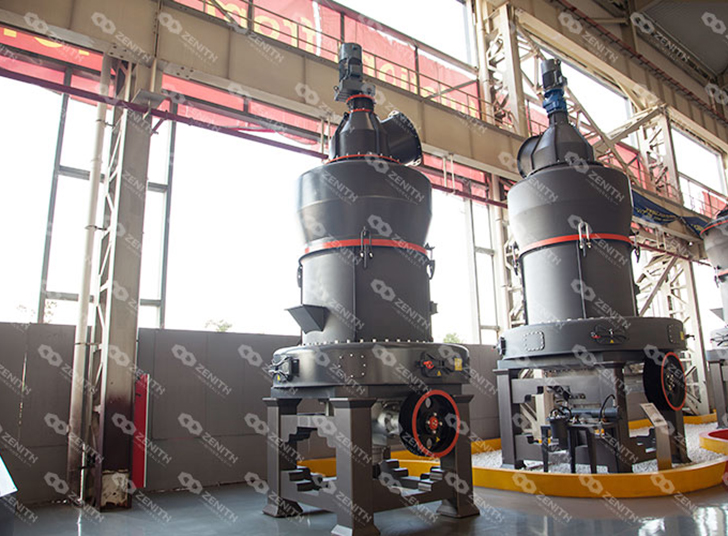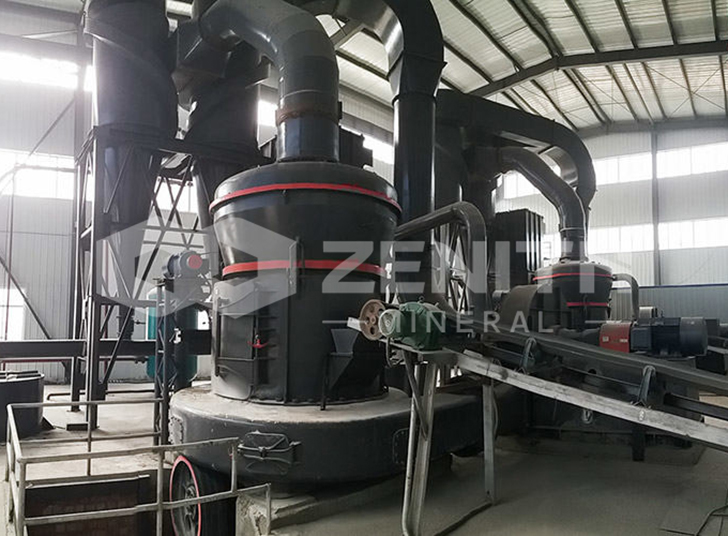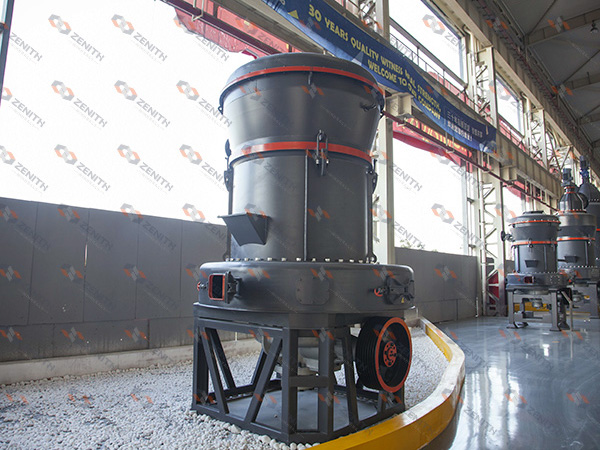Introduction
Calcium carbonate is a vital mineral widely used across various industries, including construction, plastics, paper, paint, and chemicals. With India’s economic growth, demand for high-quality calcium carbonate has increased, driving the need for efficient production technologies. The Raymond Mill, a popular grinding technology, offers a robust solution for calcium carbonate processing in India. This article explores the role of Raymond mills in calcium carbonate processing, their benefits for the Indian market, and factors affecting their selection.
1. Overview of Calcium Carbonate and Its Uses in India
- Properties and Applications: Calcium carbonate (CaCO₃) is prized for its stability, non-toxicity, and ability to serve as a filler or colorant in products like paints, plastics, adhesives, and pharmaceuticals.
- Indian Market Demand: Given the rapid growth in manufacturing and construction, calcium carbonate’s demand in India is projected to grow substantially. Market forecasts highlight applications in both high-grade and industrial-grade uses.
- Quality Requirements: Different applications require varying levels of purity and particle size, making grinding and refining crucial.
2. The Role of Raymond Mills in Calcium Carbonate Processing
Raymond Mill Technology: A traditional grinding technology, Raymond mills use a combination of roller and ring grinding mechanisms to pulverize materials. They provide consistent particle size, crucial for quality control in calcium carbonate production.
- Energy Efficiency: Raymond mills have optimized designs that reduce energy consumption.
- Fineness Control: Raymond mills are known for their ability to achieve fine powder consistency, typically reaching up to 600 mesh.
- Reduced Wear and Maintenance: With fewer moving parts than other types of mills, Raymond mills are durable and require less frequent maintenance, which can be advantageous for Indian manufacturers seeking lower operational costs.
3. Benefits of Using Raymond Mills for Calcium Carbonate in the Indian Market
- Economic Efficiency: With India’s price-sensitive market, Raymond mills offer a cost-effective solution due to lower installation, operational, and maintenance costs.
- Scalability for Diverse Market Needs: Raymond mills can be easily scaled to match production needs, allowing both small and large-scale manufacturers to benefit.
- Availability of Parts and Service: Many Raymond mill suppliers have established a presence in India, which ensures easy access to replacement parts and technical support.
- Environmental Impact: Some Raymond mills are equipped with dust collection systems and noise reduction features, which comply with India’s environmental standards and reduce production impact.
4. Factors to Consider When Selecting a Raymond Mill for Calcium Carbonate Processing
- Desired Fineness: Different applications require different fineness levels, so mills should be chosen based on the required output. Raymond mills with adjustable rollers allow for fineness control.
- Capacity Requirements: For larger operations, mills with higher capacities are essential. However, for smaller operations, a smaller mill may be sufficient and more economical.
- Power Consumption: With rising energy costs in India, selecting energy-efficient Raymond mills can greatly affect operating costs.
- Material Hardness: Calcium carbonate’s abrasiveness can impact the durability of the mill. It’s crucial to select a Raymond mill with wear-resistant components for long-term use.
5. Technological Innovations in Raymond Mills
- Advanced Material Technology: Improved materials in rollers and rings can extend mill life and reduce wear.
- Automation and Control Systems: Newer Raymond mills come with control systems that adjust grinding parameters automatically, optimizing production and minimizing waste.
- Energy-Saving Designs: Modern designs include improved grinding paths and optimized airflows, which reduce energy consumption while maintaining high production rates.
6. Competitive Landscape and Key Players in the Indian Raymond Mill Market
- Key Manufacturers and Suppliers: The Indian market includes both local and international suppliers. Each offers unique strengths, such as pricing, customization, and post-sales support.
- Product Customization and Services: Indian manufacturers may require customized solutions to meet specific requirements, including modular designs or flexible production capacities.
- Market Challenges and Opportunities: Increasing competition pushes companies to innovate, while rising construction and industrial sectors fuel demand.
7. Case Study: Successful Implementation of Raymond Mills in Indian Calcium Carbonate Processing
- Case 1: A Calcium Carbonate Supplier in Rajasthan: A brief on how a supplier used Raymond mills to meet high demand from the paint and plastics industries, highlighting improvements in quality and cost efficiency.
- Case 2: Cost Reduction in a Small-Scale Operation: How a smaller manufacturer in India leveraged the low operating cost of Raymond mills to penetrate the market competitively.
8. Environmental and Regulatory Compliance in India
- Pollution Control Standards: Indian regulations mandate dust and noise control in industrial facilities. Raymond mills, when equipped with dust collectors and silencers, can help meet these requirements.
- Sustainable Production Practices: As part of India’s sustainability goals, energy-efficient Raymond mills contribute to eco-friendly production processes.
9. Future Outlook: Trends and Innovations for Calcium Carbonate Processing in India
- Growth Projections: Market analysts project steady growth in India’s calcium carbonate industry, driven by increasing applications and construction demand.
- Technological Advancements: Continued innovation in Raymond mill technology will likely focus on energy efficiency, automation, and capacity improvements.
- Potential for Exports: As Indian manufacturers improve production quality, opportunities may arise to export calcium carbonate products to other regions.
Conclusion
The use of Raymond mills for calcium carbonate processing in India represents a vital technology to meet the country’s growing demand for high-quality industrial materials. With benefits in energy efficiency, fineness control, and operational costs, Raymond mills are a valuable investment for manufacturers aiming to enhance product quality and cost competitiveness. As technology and market demand evolve, Raymond mills will remain integral to India’s calcium carbonate industry, driving both economic and environmental benefits.
